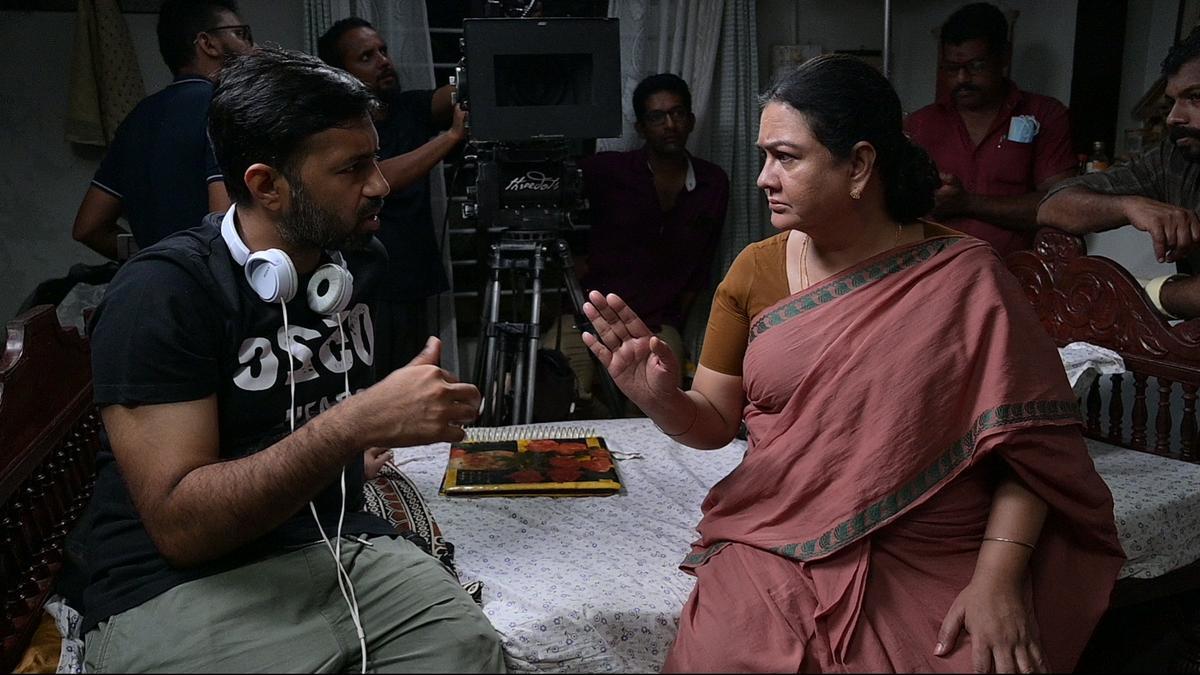
Urvashi, a revered actress in Malayalam cinema, epitomized calmness when she received a flood of congratulatory messages following her latest accolade—her sixth Kerala State Film Award for Best Actor (female). Almost nonchalantly, she mentioned that her phone’s battery was near depletion due to the constant calls from well-wishers since the awards were announced. In her signature humility, Urvashi remarked, “I don’t think I have done anything extraordinary to win the award. Viewers kept saying that an award should be given to Urvashi chechi. They predicted I would win an award. Perhaps, that is how I got it.”
Her compelling portrayal of Leelamma, a grieving mother facing harsh realities following her son’s death in Christo Tomy’s “Ullozhukku,” won the jury’s heart. Reflecting on the role, Urvashi shared, “It was a superb script and a wonderful role. I waited for three to four years for the film to begin. So did Christo. I liked the role, the script, the director. He was the writer as well. My only reservation was doing such a dark film for about 40-plus days.”
Expanding on her initial reluctance, she explained, “I would have to be in a mournful mood for all the days of the shoot, weeping all the time. The thought of having to sustain that did make me nervous. Then I felt, this character is destined for me. With that in mind, I decided to enact Leelamma. However, I decided that I would not shed any tears at all although she is a tragic heroine.”
Urvashi and Parvathy Thiruvothu’s still from the film “Ullozhukku” notably marked a profound impact. However, maintaining the emotional depth of her character without resorting to tears took a toll on her overall well-being. She admitted, “Keeping all those grim thoughts bottled up in me during the shoot left me emotionally, physically, and mentally exhausted. I realized how tough it is to weep and lament without shedding tears. If Leelamma were to cry, then I would also feel relieved of that trauma. My cheeks were aching at the end of each day after the shoot. This role was certainly a challenge.”
The rigorous 45-day filming schedule left Urvashi utterly fatigued. She recounted, “I took time to regain my composure. What helped was that I had to report on the sets of Jaladhara Pump Set Since 1962 soon after. I played a completely different role in that film. That helped me recoup.”
Urvashi rose to fame following her lead role in K. Bhagyaraj’s “Mundhanai Mudichu” (1983) and quickly became a prominent figure in Malayalam cinema with films like “Ethirpukkal” (1984) and “Ente Ammu Ninte Thulasi Avarude Chakki” (1985). Over her illustrious career, she has tackled an impressive array of roles, ranging from family dramas to action thrillers and rom-coms. After a hiatus, she returned to the screen with a commanding performance in Sathyan Anthikkad’s “Achuvinte Amma” (2005), which won her the National Award for Best Supporting Actor.
In addition to acting, Urvashi also explored roles as a scenarist and producer while continuing to be a sought-after talent in both Tamil and Malayalam cinema.
. Generous in her praise for her directors and writers, she insisted that they deserve a significant share of the credit for her success. “Actors cannot choose their characters. It is the directors’ belief in an actor that keeps them going. Their confidence imbues me with the self-confidence to slip into a character’s skin. I have never, ever waited for a director to give me a certain kind of role. I have gone with the flow,” she stated.
Urvashi holds a notably spontaneous approach to acting. She elaborated, “I never prepare for any role. I don’t know what preparation is. I have no idea about auditions, workshops, or rehearsals. I go to the location and do what I am told by my directors. Whatever I do when the director says ‘action,’ that is my acting. That is all I know.”
Reiterating her natural aptitude for acting, she recounted the difficulties she faced when asked to replicate a scene during a retake. Unlike many of her contemporaries, Urvashi never allowed herself to be pigeonholed into a particular image. She carved a niche for herself by delivering captivating performances even in negative roles, often infusing them with a touch of humor, much to her directors’ delight and encouragement.
Reflecting on her illustrious career, she considers herself fortunate never to have been typecast. She reminisced about her iconic scenes, like the fluttering of her eyelashes, which she adopted from old black-and-white films, bringing a unique charm to her roles. While she has portrayed women from diverse backgrounds, she underscored that she never modeled her characters on real people. “There was no time for that when we were shooting films within 12 to 15 days. In the morning, I would be on the set of a film. We had to get ready within 10 to 15 minutes and face the camera and do what the director told us. By noon, I would have to go to another location. There would be shooting for other movies in the evening and at night. What kind of preparation could I do under those circumstances? My directors were my teachers. They had a clear vision and they gave me the freedom to improvise and interpret a character as I saw her.”
She candidly remarked, “I don’t know how to act. My directors would tell me, ‘Urvashi, just do this role naturally, as you see it.” Rather than overanalyzing, she embraces roles that resonate with her and immerses herself in them with sincerity. “Once I reach a location, I don’t go by age or status. I look at the person in the director’s seat and follow his/her instructions.”
Emphatically, she concluded, “I want to act in a wide variety of roles. Fortunately, I have always been able to access that diversity in my filmography. That is why I say I owe it to my directors and writers.”












